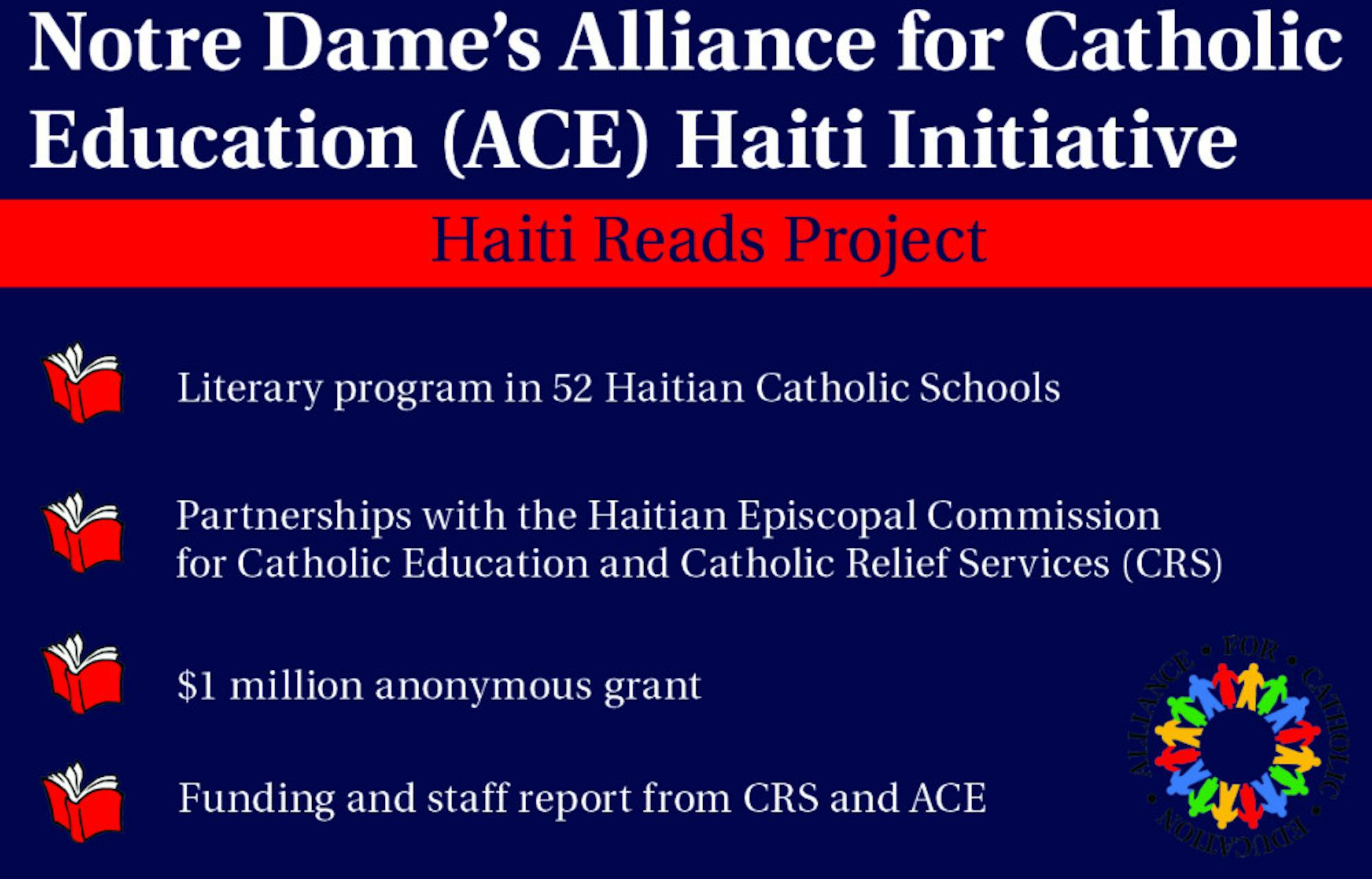Notre Dame's Alliance for Catholic Education (ACE) partnered with the Episcopal Commission for Catholic Education and Catholic Relief Services (CRS) to begin the Haiti Reads project in August 2014, working to improve the literacy of Haitian children.
The initiative is sponsored by a $1 million grant from an anonymous foundation, with additional funding and personnel provided by ACE and CRS, according to a University press release.
Kate Schuenke-Lucien, associate director of Haitian Catholic Education Initiatives for ACE, said the primary goal of the project is to help Haitian children to "learn to read, to read to learn," a mantra the project uses to promote the long term benefits of increased literacy. Haiti Reads is trying to improve students' ability to read and write in Creole, which is spoken by 95 percent of the Haitian population, and French, which is the language primarily used in educational instruction, Schuenke-Lucien said.
"We know that early literacy is incredibly important for educational success for children," she said. "Basically, children who don't learn to read well in the early grades are not able to continue in school."
According to the Haiti Reads press release, this explains why 50 percent of the Haitian adult population is illiterate and why only five percent of students continue past primary school.
Haiti Reads works with some of the 2,400 Catholic primary and secondary schools in Haiti as a way to "renew and strengthen Catholic education to provide an improved education and opportunity for the children in Haiti," TJ D'Agostino, associate director of Haitian Catholic Education Initiatives for ACE, said.
"Catholic schools are the biggest single educational provider in the country so [Haiti Reads] is a way to make a pretty big dent in trying to improve education quality in Haiti at large," he said.
Schuenke-Lucien said the project's approach to their mission is two-fold.
"[Improved literacy] would happen by improving students' test scores and students' ability to read and write ... and then also by improving the ability of the teachers to deliver a high quality curriculum to the students," Schuenke-Lucien said.
The Haiti Reads team began training teachers in approximately 50 Catholic schools in August 2014, and the teachers implemented the newly crafted curriculums in December 2014, Schuenke-Lucien said.
Jaime Zarafonetis, associate director of teaching and learning for ACE, said Notre Dame is excited to work with the teachers in Haiti.
"The Haitian educators are exceptionally dedicated, and we feel really grateful at ND that we are working with so many knowledgable and committed educational leaders [in Haiti]," Zarafonetis said.
As of now, 49 percent of Haitian third graders cannot read either language, Zarafonetis said.
ACE initiative helps literacy in Haiti
Emily Danaher | The Observer









